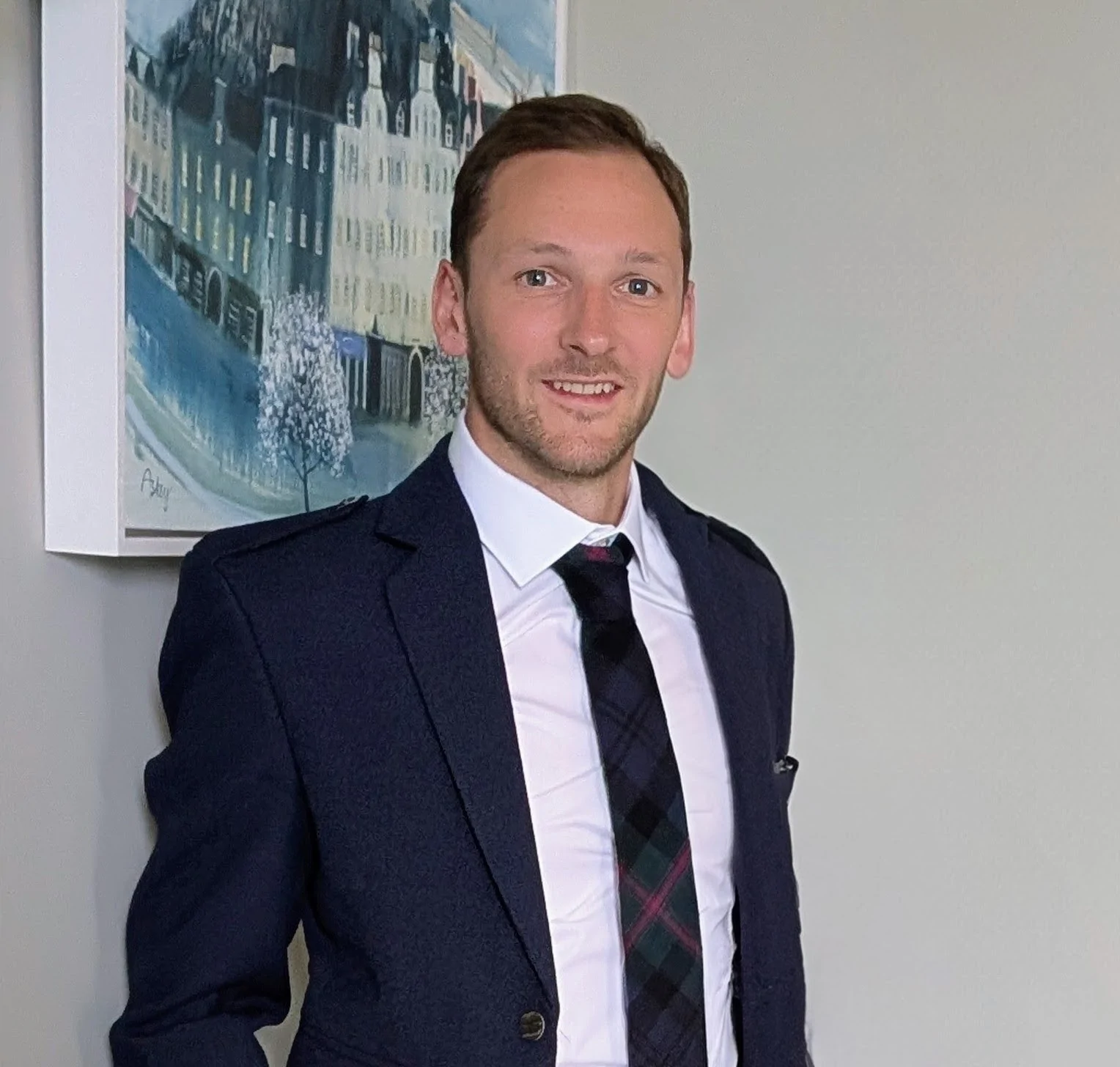
Your Guide to Becoming a Haematologist in the UK
13 Sept, 202319 Minutes
The route to becoming a haematologist in the UK might seem confusing to international doctors, especially as it usually differs from the path UK doctors take. In the UK, Haematologists will typically enter focussed haematology training at ST3 level after completing either 2 years of Internal Medicine training (IM CT1/2) or 3 years of Acute Medicine training (ACCS-IM). After joining the ST3 program, the remainder of the training will usually take another 4 years to complete: passing the MRCP(UK) exams, honing skills in all haematology sub-sets and finally culminating in completion of the FRCPath qualification and gaining a CCT in Haematology. This ultimately allows a doctor to join the Specialist Register and work as an NHS Consultant in a substantive capacity. However, how can this be done if you're an IMG?
In this article, we will review the different routes IMGs must take to become haematologists in the UK.
We’ll cover:
- What does a UK haematologist do
- What qualifications/experience do you need
- How to use those qualifications to get GMC registered
- What to expect when you gain your medical license and beyond
What does a UK based Haematologist?
The Haematologist’s role in the NHS is a mixture of medicine and science; as much as haematologists work in direct patient care, they also work in laboratories to examine samples for a diagnosis. This can differ from many other countries, where Haematologists will enter either clinical or patient facing roles, or laboratory-based medicine which is sometimes referred to as Haematopathology (this is more aligned with Histopathology in the UK).
Haematologists specialise in blood and bone marrow-related disorders, including malignant and non-malignant conditions. Some malignant conditions they treat are leukaemia and lymphomas, while some non-malignant conditions include anaemia and haemophilia.
The role itself is highly varied. Haematologists provide care to a wide range of patients of all ages, diagnosing and managing various disorders. One day might involve dealing with inpatients, whereas the next might focus more on examining blood samples at a cellular level. You can find haematologists in various medical environments, as they may work in research facilities, blood banks, hospitals, and clinics. There are different levels of unit (1-4) which you could be working in – a level 4 unit is generally only found in a full spectrum university teaching hospital, whereas a level 1 or 2a unit would be in a smaller general district hospital. It's important to consider this before you start applying for jobs as the level of unit will also usually correlate to the type of geographical location you end up working in. The NHS also has the NHS Blood Service which employs Haematologists and is separate to individual Acute NHS Trusts who locally employ Haematologists.
It’s a highly specialised, senior-level role involving much responsibility. As such, haematologists earn a competitive salary and enjoy a varied, fulfilling career. The path to becoming a Haematology Consultant for IMGs differs based on your experience and training. If your specialty in your home country is haematology, it will be a much shorter route than if you come to the UK to start haematology training. As an experienced haematologist (i.e. over 5 years of specialty specific experience), you would probably be better placed to follow the CESR/Portfolio Pathway route, which you can find out more about in our blog here.
Getting GMC Registered
You must register with the General Medical Council to practice as a UK doctor. This is a prerequisite for everyone, including both UK-born and international doctors. You’ll need to supply specific documents and apply on the GMC website.
Some evidence you provide to support your GMC application will be specific to your training and qualifications.
You’ll need:
Primary Medical Qualification
Your primary medical qualification is your university medical degree; you must prove you have this to GMC. For most IMGs, this will be your MBBS.
Proof of English Language Skills
To communicate effectively and safely as a doctor in the UK, you must prove your English language abilities. Typically, IMGs do that through either the IELTS or OET qualifications (either is fine). If you received your PMQ from an English-speaking country, that will also suffice as evidence. Read more about the English language requirements here.
Knowledge and Skills
Here, the evidence you provide can vary. Some international doctors pass the PLAB tests to prove their basic knowledge and skills, however certain postgraduate qualifications are also acceptable - generally these postgraduate certificates will also make you a more attractive applicant for haematology jobs.
When aiming to pursue haematology, MRCP(UK) or FRCPath(UK) are considered the best options as they showcase your clinical skills commensurate to a UK trainee who would also do those exams.
Remember that if you choose the PLAB route, you're only demonstrating basic medical practices, so could limit your options above ST3 level roles. Of course it all depends on the experience you have already, however, if you want to work at a higher grade as a haematologist as soon as you start working in the UK, most Trusts will require either MRCP or FRCPath as the standard.
As mentioned, the pathway you choose depends entirely on your skills and background. For example, it's entirely possible (although extremely tricky) to complete the CESR/Portfolio Pathway and get Specialist Registration without the FRCPath exams. It's also possible to get an ST3+ service level role with PLAB if you have a lot of clinical haematology experience.
To sum, the PLAB route is faster and cheaper than the others, but it typically puts you in a position to only apply for lower-level positions because the exams only test general, lower-level medical skills. Competition for roles also means that those holding MRCP or FRCPath will be the more desirable applicants. The Royal College qualifications take longer and are more expensive, but by doing them you are naturally gathering good evidence for a CESR/Portfolio Pathway submission and more clearly highlighting a relatable level of clinical competency. More information about the college exams are offered below.
Fitness to Practice
The GMC will ask questions about your health and fitness levels to determine your fitness to practice.
Certificate of Good Standing
A certificate of good standing must come from every medical regulatory authority you’ve worked at for the past five years.
You can submit all of these documents while applying for GMC registration on the GMC official website.
PLAB
PLAB is a two-part exam for overseas doctors to prove their medical skills and knowledge. By passing PLAB and getting GMC registered, IMGs can register for a general license to work as a doctor anywhere in the UK.
PLAB: Part 1
Part one is a multiple-choice examination that involves 180 questions. These questions cover a broad range of medical topics to test your overall medical understanding.
PLAB: Part 2
Part two is a practical exam taken in the UK. In the exam, you go through eighteen clinical scenarios, showcasing your communication and decision-making skills in a clinical situation.
PLAB is a popular qualification for IMGs as it grants access to GMC registration. Typically, those that select the PLAB route are more junior and so generally apply to NHS roles at the FY2 or CT1 level. However, it is open to anyone at any level and overseas Consultants would be able to gain more senior roles than CT1 if they decide to register with the GMC via PLAB. Generally, with this qualification, it will take you longer to get into haematology training. However, it can be a good route to establishing yourself within the NHS before doing UK-approved ST3+ training in haematology or exams to prove your qualifications.
If you’d like to know more then you can read our dedicated article about all things PLAB here.
MRCP
Completing MRCP(UK) will give you Membership of the Royal College of Physicians (UK). Should you use this qualification to enter a formal UK training program for haematology, you would typically enter at ST3 level and follow the same curriculum as native haematology trainees from that point - also known as CESR-CP. That said, you can also use it to gain a service level role that will support you through the full CESR/Portfolio Pathway route (bypassing UK training), similar to the recommendation made to those completing FRCPath(UK). You’ll find our guide to CESR-CP here.
The MRCP is designed to give the NHS absolute assurance that all doctors are held to the same high level as ST3+ level doctors in the UK. As such, these exams are challenging and require you to demonstrate a wide range of medical knowledge and understanding. It comes in three parts: two written and one practical exam.
Part 1
MRCP: Part one lasts one day. It’s a theory examination with best-of-five questions. The questions focus on medical facts, assessing your knowledge as a baseline for your medical competencies. This is tailored to the UK curriculum.
Only once completing part one may you do either part 2 or PACES. You can do the next two in any order.
Part 2: Written
Part Two: Written consists of two papers to be taken in a single day. These are best-of-five questions. On top of your medical knowledge, these papers also assess your medical understanding and judgements. The potential answers might include picking a prognosis, management plan, or investigation. Unlike part one, these papers will provide medical images, such as x-rays and scans, as part of some questions.
Part 2: Clinical (PACES)
PACES is a practical exam that takes place in a clinical setting. There are five stations in total, which involve dealing directly with a patient. Two examiners at each station watch you and will assess your knowledge, communication skills, and clinical abilities.
To pass all parts of the MRCP exams, the MRCP website has a lot of excellent resources to help you revise and learn more about these examinations, including eligibility, centre locations, and how to apply.
The MRCP exams are a fantastic way to establish yourself as a UK doctor. The completion of MRCP better prepares you to start working as a doctor at ST3+ level, where you can specialise in the field of haematology.
You’ll find our article dedicated to passing the MRCP suite of exams here.
FRCPath: Haematology
Suppose you have already specialised in haematology in your own country for a number of years and have the knowledge and skills to prove it; in that case, you should go straight into doing FRCPath Haematology. By doing this you are showing you have the same clinical skill set as a senior UK trained haematologist.
The FRCPath examinations come in two parts. You must complete at least two years of specialty training to complete part one and three years for part two.
FRCPath Part 1: Haematology
FRCPath Part 1 can be taken online from anywhere in the world. It consists of two separate papers and assesses your overall knowledge of haematology. Paper one lasts three hours with four essay questions, while paper two lasts three hours with 125 multiple-choice questions.
FRCPath Part 2: Haematology
FRCPath Part Two must be taken in the UK. It involves four exams in total, including three written papers with short, focused answers and an oral exam to demonstrate verbal skills in front of two examiners.
You’ll need a 12-month gap between taking part one and part two, which means it’s a good idea to do part one a year before the end of your training. Once training is complete, you can complete part two.
Applying for the FRCPath: Haematology exams is easy; you do it on the FRCPath website. Once you have completed and passed these exams, you can use the qualification as part of your evidence for a CESR/Portfolio Pathway submission for Specialist Registration as a Haematologist.
You’ll find a full guide to the FRCPath Haematology exams here.
Tips for Interviewing for Haematology Roles
Interviewing for your first doctor role in the UK can be daunting, so what should you expect? How do you prepare?!
After working hard to achieve your qualifications and gain the relevant experience, you don’t want to mess up at this part – especially if the position you have an interview for is the perfect one for you.
Below are our tips for preparing for your interview, whether for haematology ST3+ training or a haematology consultancy post. You could also visit our website (here) to download one of our interview guides.
Familiarise Yourself with Your Portfolio
Before your interview, your recruiter will have gone through your achievements and done a preparation meeting/call with you. You need to be familiar with it all so that you can answer questions in a timely manner. It’s a good idea to have answers prepared specific to your achievements and background.
Get to Know the Most Common Questions
While there might be some questions in the interview that you don’t expect, the chances are that you’ll also hear the most obvious interview questions. Questions like “Why did you choose haematology as your specialty?” will likely arise, so prepare a concise answer for them.
Some typical haematology interview questions the interviewer may ask of you include:
- Can You Describe a Recent Advancement in Haematology?
- What Blood-related Medical Technologies Have You Worked With?
- What’s the Most Common Blood-related Disorder You Have Treated?
- How do You Keep Up to Date with Haematology Research?
- Do You Specialise in any Haematology Conditions?
Be Prepared for Clinical Scenarios
For haematology interviews, you will generally have three interview stations. For interview station two, you will be given a typical haematology case and asked to assess it. So, mentally prepare yourself for these clinical assessments when you go into this interview. It might help to practice with a colleague or mentor.
Training to be a Haematologist in the UK
UK haematology training begins at level ST3+ and is classed as a group two specialty, so if you choose the CESR-CP route then once you start training, it will usually take five years to become a haematologist. This will be different for CESR/Portfolio Pathway doctors whose timeline and journey depend on their individual clinical experience and the evidence they have or still need to gather.
The first year of haematology in the UK will include a lot of introductory content, including an understanding of the use of the laboratory. Throughout those five years, you can expect to switch your time between providing clinical care to patients as well as examining samples in a lab. It’s very varied; one day, you might provide clinical care to a patient with leukaemia, and then the next, examine a bone marrow aspirate through a microscope.
As part of the training, you can expect to cover:
- Paediatric Haematology
- General Haematology
- Blood Transfusion
- Haemostasis and Thrombosis
- Haematological Malignancy
Towards the end of your training, you will take the FRCPath exams (usually, you’d take part one at the end of year four). Once you have completed those exams you’ll gain Royal College of Pathologists Fellowship, demonstrating your ability to work unsupervised as a Consultant Haematologist. You can use this as part of your CCT to get on the specialist register and apply for haematology posts.
What to Expect as an NHS Haematologist
Life as an NHS haematologist differs depending on the level you are starting at. Do you already have a lot of experience in haematology from your home country? If that’s the case, there’s a chance you can start at Consultant level immediately. Do you plan on moving to the UK as a medicine doctor and doing your haematology training in the NHS? In this case, you’ll enter a junior position, which will have a different salary and more variable daily routine.
What to Expect at Each Level
FY1+FY2
Salary: £32,398-£37,303 (as of 1st April 2023)
Generally, the lowest level most IMGs start at is FY2 (however, it is possible for some IMGs to start at FY1). These are your foundation years and will act as the building block of your medical experience and knowledge. At this stage, you won’t choose haematology as a speciality, but you can show interest in it by speaking to your supervisors. Your time in foundation training will be very varied; you’ll typically work in an NHS teaching hospital, spending your time in different departments.
CT1+2
Salary: £52,530-£82,400 (as of 1st April 2023)
CT/ST1-2 is the very beginning of speciality training, and starting your NHS career at this level means you likely haven’t completed any speciality training in haematology in your home country. These two years of training will focus on the basics of general medicine, preparing you for the ST3+ level haematology roles.
ST3+
Salary: £83,945-£92,275 (as of 1st April 2023)
ST3+ includes ST3 all the way through to ST8. These are your speciality training years, where you will focus intensely on haematology. As time passes, you’ll gain experience in the full range of haematology sub-sets, perhaps starting to decide if you’d like to sub-specialise in one of these areas. You’ll do ward rounds, participate in MDT’s, have responsibilities within in-patient and out-clinics, as well as take part in the middle grade on-call rota. Although working under supervision, you’ll also have a lot more responsibility.
Consultant Level
Salary: £93,666-£126,281 (as of 1st April 2023)
Working as a Consultant Haematologist means working unsupervised and you’ll have a lot of responsibility. Your time will be separated into lab work and direct patient care, and you’ll use your level of expertise to monitor, diagnose, and treat patients, as well as participate in teaching/training and research. There will likely be a requirement to contribute to the on-call rota too.
Additional Responsibilities
You’ll likely meet patients on their initial visit, determine a diagnosis in the lab, and develop treatment plans for blood disorders, such as clotting disorders, myelomas, and leukaemia. Depending on the level of unit you join, you may also be involved in stem cell transplantation and intrathecal chemotherapy, while also partaking in research/clinical trials.
Haematology Subspecialties
If you reach Consultant level as a Haematologist, you may decide to pick one subspecialty to specialise in, which is great if you have a particular area of haematology that you have a keen interest in. It can also make you a more competitive candidate when interviewing for future roles. Your options include:
- Haematological Malignance/Haemato-Oncology
- Paediatric Haematology
- Haemostasis and Thrombosis
- Transfusion Medicine
- Red Cell and Haemoglobinopathy Disorders
Keep in mind that not all NHS hospitals facilitate each speciality – a District General Hospital is unlikely to offer Transfusion work, for example. As such, your chosen subspecialty should impact the hospitals you apply to work in, so do your research into each hospital – in particular, the facilities they offer.
You should also be aware that there’s no obligation to choose one of the above subspecialties! Many NHS haematologists decide to do general adult haematology for the entirety of their career. This career path is varied and exciting, allowing you to split your time between direct patient care and laboratory work, so you won’t be missing out by not choosing a sub-specialty.
What Skills Do You Need to Succeed?
It takes a lot more than clinical skills when it comes to succeeding as a haematologist in the UK. While these are crucial, there are also certain soft skills you need to be able to deliver safe and effective patient care.
Organisational Skills
As a haematologist, your day will be filled with numerous tasks; you must keep track of time, documentation, patients, and much more throughout the day, all of which you need to be in control of and perform promptly. To manage this, high organisational skills are a must.
Teamwork
As mentioned, working as a haematologist means being part of a multi-disciplinary effort and as such, that means being able to work well as part of a team, as well as being able to perform as a leader. The NHS focuses on collaborating in such a way because it improves overall patient care.
Communication Skills
Your haematology work will mean consulting with many other healthcare professionals throughout the day, from nurses to clinical scientists. To manage this effectively – ensuring all information is passed on correctly – you’ll need a high level of communication skills. Many of the qualifications needed to become a haematologist at a senior level will test you on this.
Emotional Resilience
Haematologists often work with life-threatening conditions, which means you will have to watch patients go through difficult times and you will be expected to break bad news to patients. This is a very tough part of the job, and you need to be emotionally resilient in order to get through it.
Research
The role of haematology does not just involve providing clinical care to patients with blood-related disorders. While that’s a large portion of it, you’ll also be expected to participate in the science side of haematology. For that, you’ll need good research skills. Extracting, organising, and evaluating information related to haematology will help you perform your own research, contributing to the development of the practice.
Becoming a UK Haematologist: FAQs
FAQ 1: Do I Need Previous Haematology experience to work as a Haematologist in the UK?
Yes and No – it depends on the level of job you are pursuing. However, to give yourself the best chance it’s recommended to have a few years of specialty specific experience even at more junior grades. You won’t have NHS experience yet, so give yourself any advantage you can; you may be interviewing against UK experienced candidates too. The MRCP examinations are a good place to start and will prepare you for ST3+ level roles where you can specialise solely in Haematology.
FAQ 2: How Long Does Haematology Training Last?
Once you begin a haematology training post at ST3+, it will take five years to complete training. To complete the training, you’ll need to attain FRCPath in Haematology. However, CESR/Portfolio Pathway and CESR-CP candidates will have a different journey – this can take anything from 1-5 years depending on previous experience and readiness with evidence to submit. Please call us if you’d like to discuss your particular journey in more detail.
FAQ 3: Does FRCPath: Haematology Guarantee a Consultant Position?
FRCPath in Haematology is certainly a hugely helpful qualification in haematology, however it doesn’t guarantee a position. Some departments will prefer to hire IMGs with this qualification at a Specialist or Specialty Doctor grade and support them in acclimitising to the NHS before stepping them up. This is generally good for both parties as it provides a “bedding in” period and ensures a safer transition to the UK system.
FAQ 4: What’s the Demand for Haematologists in the UK?
With an aging workforce that is dealing with more cases every year, the demand for skilled haematologists in the UK is huge. Although this is the case, don’t assume you can pick any vacant role you like – quality is at the heart of NHS haematology services, so you still need to evidence a high level of clinical practice and experience. Be patient and prepared and you will find the right role!
In Summary
Haematology is a challenging field that requires a very high skill level. As an IMG, you have several routes to becoming a Haematology Consultant in the UK. If you have already specialised in haematology, you can go straight into doing your FRCPath which will help you in your quest to getting onto the Specialist Register. Otherwise, you can do the UK-approved haematology training from ST3+ by completing MRCP or sitting PLAB and applying for an entry level role as a full UK trainee. Either way, the need for skilled haematology doctors is clear and the NHS provides an excellent pathway to a successful career in the specialty.


